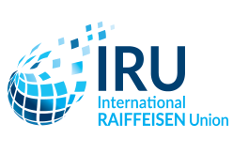Every first Saturday in July is celebrated as the International Day of Cooperatives. Andreas Kappes, General Secretary of the IRU – International Raiffeisen Union, answered three questions about cooperatives on this day.
Q: What is the issue of the International Day of Cooperatives?
AK: The motto of the International Day Cooperatives 2017 says: “Cooperatives ensure no one is left behind”. The United Nations and the global cooperative family – represented by the International Cooperative Union ICA, hand in hand with the numerous national cooperative organizations, including the IRU and its members – are honouring the power of cooperatives on July 1st, by providing active assistance to self-help and giving a voice and the opportunity to get into business especially to the poorest in our society. In most countries of the world, the cooperatives have a goal from the very beginning: the promotion of their members. Cooperatives thus ensure economic and social inclusion, from which the community as a whole benefits, in turn.
Q: What is the significance of this day for the cooperative movement and for the IRU?
AK: The International Day of Cooperatives, celebrated on all continents on the first Saturday of July, is a strong, clearly audible and visible sign of solidarity and strength. It refers to the joint contribution of the cooperative movement, together with the United Nations, to the solution of global issues. Cooperatives and their members are primarily representing the central principles of Friedrich Wilhelm Raiffeisen called self-help, self-administration and self-responsibility as well as ethical values such as honesty, openness, social responsibility and mutual solidarity. We take this day as an occasion to draw attention to the relevance of the many different cooperative companies, to their efficiency and unabated high topicality as promoters of the economic and social development of a country.
Q: Why are cooperatives so important for our society? How do you see the future of cooperatives?
AK: The above-mentioned cooperative principles and ethical values are relevant and notable for every society. The global figures are impressive: cooperative organizations exist in about 100 countries around the world, including many who are members of the IRU. An estimated three billion people are dealing directly and indirectly with cooperatives, achieving income and security by cooperatives. Cooperatives are therefore more and more perceived as important economic and social actors and anchors of stability for sustainable development.
The Sustainable Development Goals (SDG), adopted by the United Nations in 2015, bring the aspect of sustainability in the focus of all our actions. Cooperatives as well as their international cooperations such as the IRU can contribute considerably to the realization of the SDG. All cooperative organizations are therefore invited to participate in the pursuit of the new development goals and actively participate in the process. Amongst others, cooperatives are promoting sustainable economic development, creating income, reducing poverty, helping to fight hunger, supporting economic and social inclusion, especially for women and young people, and are promoting education. Cooperatives are a concept with a future in the 21st century because we need global sustainable development.








